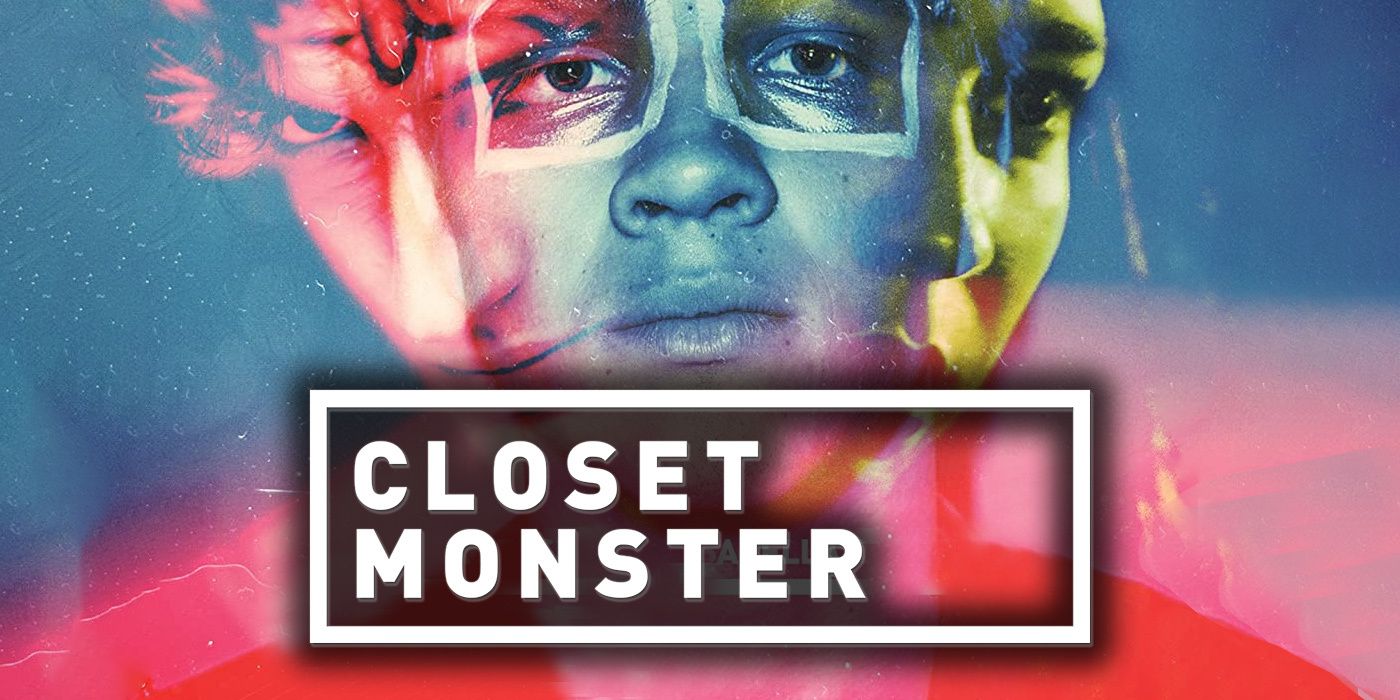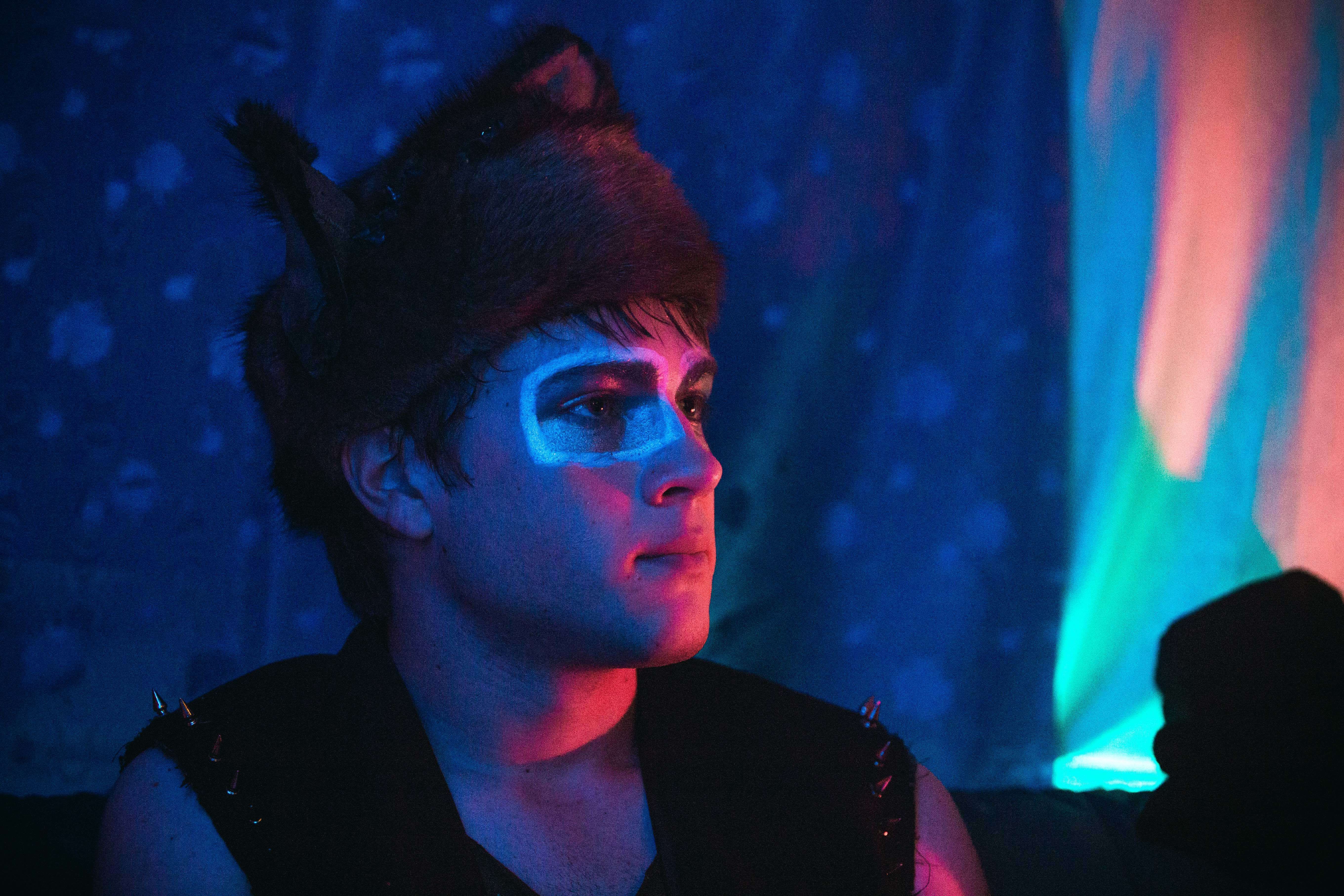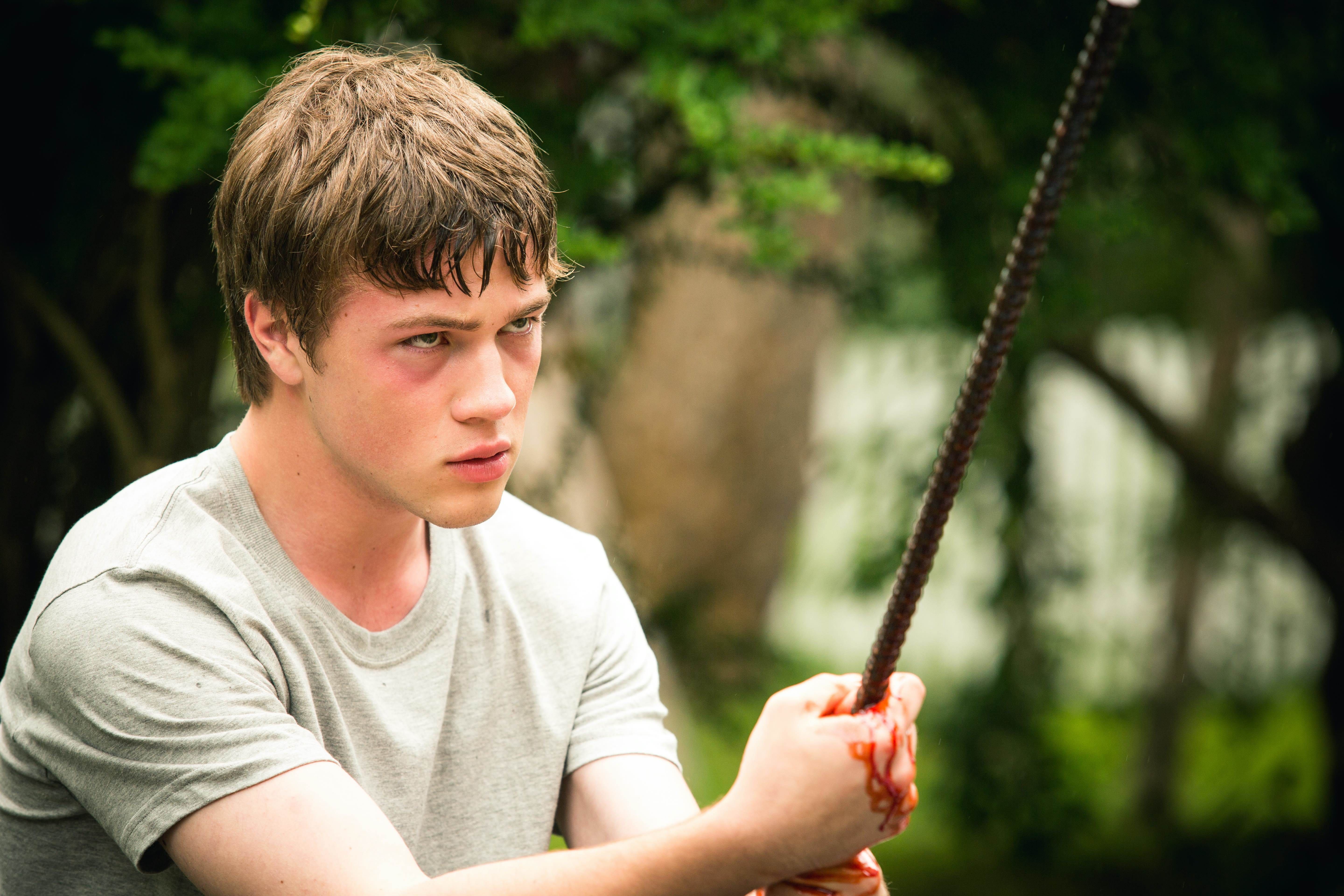Released in 2015, Closet Monster told the story of a teen hoping to leave his Newfoundland town behind him. Played by Connor Jessup, Oscar Madly is quiet and keeps mostly to himself. The people he surrounds himself with are his father and close friend Gemma (Sofia Banzhaf), keeping his mom, Brin (Joanne Kelly), at an arm's length, still frustrated that she split from his father when he was a kid. When he’s not working a shift at a local home improvement store, Oscar is busy building his art portfolio, having a great interest in horror movie makeup and prosthetics. With all that said, Oscar is a decent, average teen. What makes him stand out in this story is the rich fantasy life he’s created for himself. Through it, he hears his hamster Buffy talk to him with heartwarming affection, the voice work done by acting legend Isabella Rosselini. But for how rich that fantasy life is, it has a terrible downside. When Oscar develops a crush on local “cool” guy and fellow coworker, Wilder, vivid bursts of body horror afflict our protagonist.
As intense and gory it is for him, it’s really all in his head. That doesn’t lessen any of the suffering Oscar is putting himself through. There is no mystery as to what caused the catalyst for this internalized trauma. It goes back to when he was eight years old and he witnessed a gay bashing among teenagers. The attack occurs within a cemetery and involves the horrific use of a metal rod. When little Oscar questions the motivation behind the attack with his father, Peter (Aaron Abrams), a nonchalant answer is given. To paraphrase, the attacked occurred because the victim was gay, so "they got what was coming to them.” This moment in particular has been bottled inside Oscar throughout all his schooling and it’s about to reach a tipping point.
Spoilers Below
Horror pop culture is referenced freely during the film’s runtime. Buffy the hamster got her name thanks to director Stephen Dunn’s childhood love for Buffy the Vampire Slayer. The callback works well. It was a mainstream show that not only included queer themes but finally tried to flesh out several queer characters. In an interview with Glenn Dunks, Dunn elaborated on what drew him to the show: “I’ve always been drawn to the supernatural and magic realism, but there was never a true hero that resonated with me quite like Buffy did. The most compelling aspect of the show for me was the dynamic way Joss Whedon shaped the growing pains and horrors of growing up and channelled them into literal monsters that could be battled.”
Beyond a name grab, there’s various vampire imagery in Closet Monster. As a child, Oscar played a game where he chased his father around with a wooden stake, and when he “stabbed” him, his father threw a batch of red leaves into the air, like a spray of blood. Little Oscar even carried around that stake as a form of protection, it being on him when he heard the commotion in the cemetery. But it doesn’t do him any good. There aren’t any real vampires in this film. What proves to be the scariest thing in this film is something as real as an unprovoked attack on someone due to their sexuality. That’s when body horror is used to its grisly effect.
Very much “in the closet,” Oscar can’t even get sexually arroused with the crush he has on Wilder (Aliocha Schneider) without the past beating him up inside. At one moment as Oscar becomes lost in a fantasy of a shirtless Wilder, slowly the background he's standing in gets clearer. It’s the cemetery the hate crime happened in. Not a second too soon, Oscar has a glimpse of a metal rod, the very one from the past, protruding out of his own body and he understandably freaks out. But as repressed as he is in his sexuality, it’s begging to be unleashed. If not, it threatens to turn him into a Frankenstein’s monster of his father, maintaining an artificial and toxic facade of what “being a man” means. It threatens his relationships with the women in his life because of this. At times, Oscar raises his voice at his hamster, who shows nothing but love for him. He's distant and cold to his mother. And he threatens his friendship with Gemma, treating her poorly at times, ridiculing her modelling aspirations after high school.
Although he doesn’t mean to specifically hurt her, Oscar rides along the fine line of using her as a crutch, someone for his father to think that maybe one day, they will get together. In other words, to still be seen as straight. Their friendship heals in the end, because the most severe and damaging conflict is in Oscar’s relationship to his father, a fractured one that is dangerously strained to the point of violence. If Peter is supposed to be a father figure and role model to his son, he greatly fails multiple times. Being reckless with his words when his son was younger might have been bad enough but now much older, with a son soon about to graduate high school, Peter hasn’t changed. He's selfish and bitter, still holding contempt for his wife for leaving him, making sure he's tainted Oscar’s feelings towards her as well. This is evident in just how far Oscar goes to feel maternal love, making himself believe he can get it from his hamster rather than his still-living mother, Brin. Peter doesn't even allow his son to have a key to the house, paranoid his ex-wife will steal it and invade his space. But during two key encounters that become very heated between father and son, Peter can’t resist acting out physically. It succeeds in driving his son away from him, not so differently than he managed to do with Brin.
Oscar realizes in the end that it is Peter he needs to leave behind, not his town. It comes to a head in a scene where Oscar discovers his father has thrown out personal belongings from his bedroom, dumping it all on the front lawn. Among the debris is poor Buffy, the hamster who was the closest thing to a consistent parental figure, now lifeless. The sharp stomach pains start up again but this time Oscar lets it take over. Something pokes out from under the skin of his stomach and he claws at it. He pulls a metal rod out from his own body, the same weapon used from his childhood, and uses it as a force of empowerment in the present. The sheer rage terrifies Peter. Who knows when the two will repair their relationship, if at all. But with that release of power, Oscar has healed a small piece of himself. The rest of the process will come eventually.
Closet Monster was the feature film debut by Dunn, who grew up in St. John's and Labrador, Newfoundland. In an interview with VICE, he talked about how the film’s opening scene was based in reality. A series of gay hate crimes happened in St. John's, with one kid being assaulted with a branch and ending his life a few years later. The trauma halted his own sexuality and with his first feature, Dunn wanted to use his personal anxieties to visualize the metaphorical “closet” many queer individuals lock their sexualities, and themselves, into. It’s not a physical barrier but Dunn made it visceral and raw. Because “coming out of the closet” involves an internal acknowledgement, it makes sense Oscar has to grapple with body horror inside himself, under his skin. It could be drinking too much at a party and getting sick, seeing screws and bolts instead of bile. Or it could be the metal pole from the past, trying to find release. In the end, Oscar takes control over it and it’s one of the rare LGBT films that isn’t about escaping but reclaiming your place. From the interview with Glenn Dunks, Dunn described his goal with his body horror approach:
“The body-horror elements evolved pretty organically. I wanted to visually and psychologically interpret the feelings of internalised homophobia in a way that could be physically overcome, yes, sort of like in Buffy. Oscar’s internalised homophobia manifests into an ulcer, a bulge, and essentially an alien he must remove from his body in order to heal, in order to love himself. The pain of coming out and accepting who you are is very powerful, but there’s nothing more liberating than the moments afterwards when you can finally be yourself.”
In various reviews, there was one notable aspect repeatedly praised. Dunn was compared to his fellow Canadian filmmakers, David Cronenberg and Xavier Dolan, and for good reason. Cronenberg became well-known for using body horror within his narratives, using gory and sickening physical effects and makeup to talk of much bigger issues and themes (Videodrome, The Fly, among others). Dolan on the other hand, became known as enfant terrible, due to his young age when he released his directorial debut (I Killed My Mother), his unabashed use of vibrant, music video-esque aesthetics, as well as the melodramatic story elements and the powerful female characters he includes.
But it isn’t entirely fair to rank Dunn in between these two and call it a day. Cronenberg’s films were purposely cold and detached, sterile even with how its characters interacted with one another. As for Dolan, Dunn showed levels of violence Dolan would only be comfortable hinting at, if showing at all. Stephen Dunn proved to be his own artist and his debut represented that. Closet Monster is not cynical, but very sensual at times. It’s not graphic but it is violent. And for all the darkness that exists around Oscar, humor is meshed in as well. During a final goodbye between Oscar and his motherly hamster Buffy, he plans to send her small body off to sea for a makeshift funeral. They have a final exchange where Buffy sweetly appreciates the fact, "I'm just happy you're not going to set me on fire." Closet Monster is a refreshingly strange and welcomed entry within LGBT cinema that shouldn’t be missed, if not for its metaphor around gay repression and body horror, than maybe for the talking hamster.




